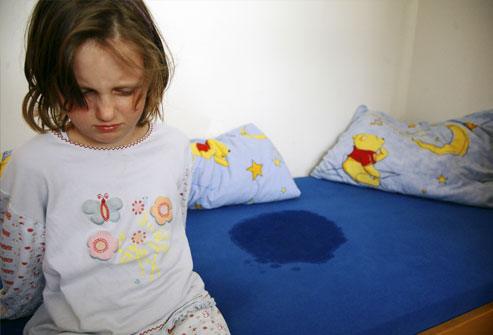The number-one reason: He/she is normal. Since 15 percent of children still wet their bed at age 6, pediatricians rarely address bedwetting before this age. Kids who haven’t had six months of dry nights are often simply very deep sleepers who don’t wake up when their bladder is full. They may also make more urine than average at night or have a smaller-than-average bladder. Genes play a huge role: Kids whose parents wet the bed after age 6 are likely to stop at around the same age their parents did.
Other factors, including constipation and sleep apnea, can cause or worsen bedwetting. Once your child starts using the bathroom independently, you might not realize that she’s blocked up, so ask her. At night, listen for sounds of snoring or gasping. Stress may play a role as well: Family discord, bullying, or financial distress can all contribute. And if your child has started wetting the bed after six or more months of dry nights, or if she is also having daytime accidents, talk to your pediatrician. These issues could be signs of a medical problem, like a urinary tract infection or even diabetes.
source: https://www.parents.com/










